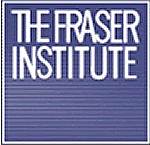The Fraser Institute, the right-wing think tank that sponsored the recent political attack on the IPCC (Intergovernmental Panel on Climate Change) Fourth Assessment Report, has a history of promoting the work of industry-funded science critics.
For example, in 1999, the Fraser Institute published Passive Smoke , a pseudo-scientific attack on the U.S. Environmental Protection Agency’s quest to demonstrate the health risks of second-hand smoke. At the time, the Fraser Institute made no mention of the questionable bona fides of the book’s authors. Gio B. Gori had been a long-time consultant to the Tobacco Institute, prior to which he was vice president of the Franklin Institute Policy Analysis Center (FIPAC), a consulting firm funded initially by a $400,000 grant from the Brown & Williamson Tobacco Corporation (B&W).
And John C. Luik had been paid $155,000 by big tobacco only one year earlier for his part in editing the industry-friendly tract Plain Packaging and the Marketing of Cigarettes.
Luik became a tobacco advocate after losing his university job in the early ’90s. Look here for the entertaining reason that Brock University in St. Catharines, Ontario, gave for refusing to renew his contract teaching applied professional ethics.
Look here is the information on Luik that the Fraser Institute released at the time of publication.
Subscribe to our newsletter
Stay up to date with DeSmog news and alerts






